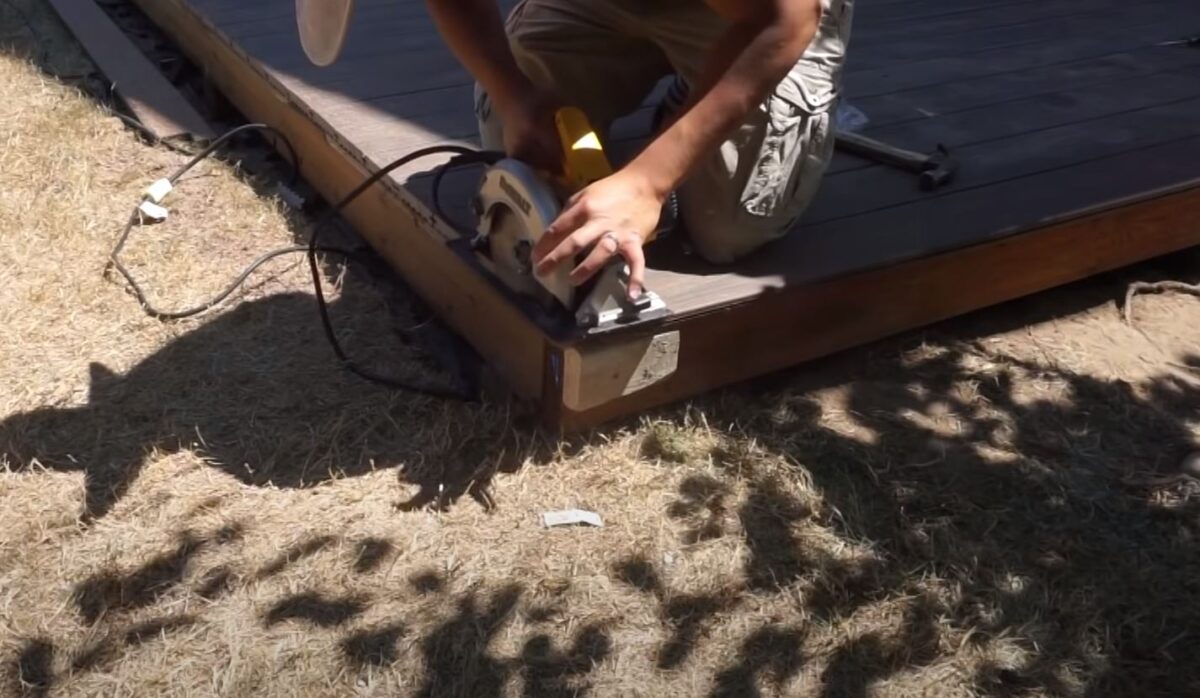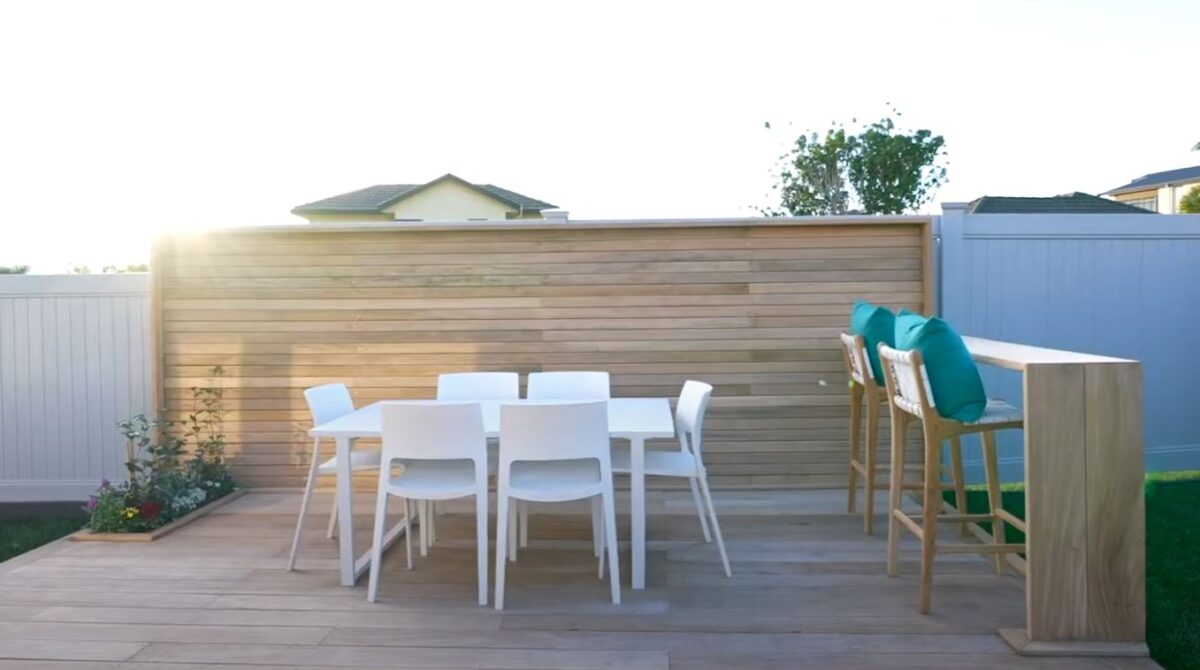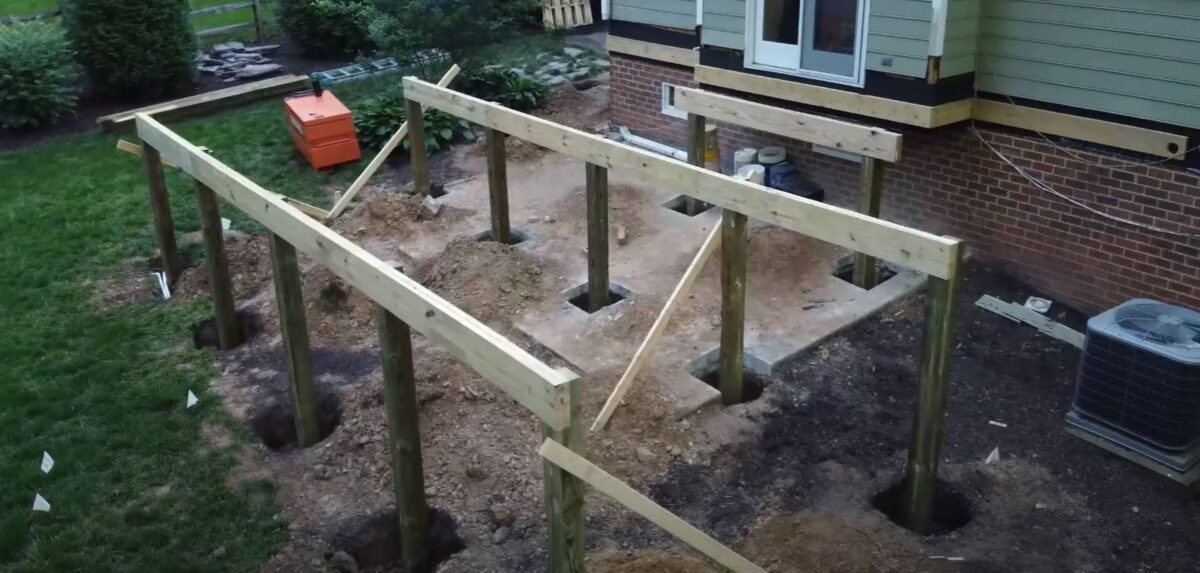Understanding Floating Decks
Defining a Floating Deck
A floating deck, a versatile and stylish addition to any outdoor space, stands distinct from traditional decks. It’s not anchored to a building, offering a freestanding platform, typically resting on blocks or piers rather than being attached to the house with ledger boards. This feature allows flexibility in placement, making it ideal for a variety of landscapes.
Construction Elements
Key components in floating deck construction include:
- Foundation Blocks: These robust blocks, often made of concrete, form the primary support.
- Joists and Bearers: Treated timber frames that create the deck’s structure.
- Decking Boards: The visible surface, chosen for durability and aesthetics.
Benefits of Floating Decks
Floating decks boast several advantages:
- Versatility in Location: They can be built anywhere in the yard.
- Ease of Construction: Often simpler to build than attached decks.
- No Damage to Building: Avoids drilling into the home’s exterior.
- Aesthetic Appeal: Offers a modern, clean look.
Installation Considerations
When planning a floating deck, consider:
- Ground Preparation: Ensuring a level surface is crucial.
- Material Selection: Opt for weather-resistant materials.
- Compliance with Local Regulations: Check Auckland’s building codes and regulations.
Health and Safety Aspects
Safety is paramount in deck construction. Adherence to proper techniques and the use of safety gear are non-negotiable.
Potential Risks
Awareness of potential risks, like uneven surfaces or structural failures, is essential.
Fencing Options
Integrating fencing can enhance the deck’s function and style. Options vary from classic wooden fences to modern glass panels, offering both privacy and aesthetic appeal.
In Auckland suburbs like Penrose and Hillcrest, floating decks can adapt to the unique landscape and architecture, providing a bespoke outdoor living experience.
Engaging Professionals
For a successful project, engaging experienced deck builders like Quality Fencing Auckland ensures quality craftsmanship and adherence to local standards.
In Summary: The Value of a Floating Deck
A floating deck represents more than just an outdoor structure; it’s a lifestyle enhancement for your home. Its distinctive design and versatility make it an ideal choice for Auckland homeowners looking to elevate their outdoor space. Unlike traditional decks, a floating deck offers a sense of freedom and flexibility, unbound by the constraints of being attached to a house.
The magic of a floating deck lies in its ability to fit seamlessly into any part of your garden or yard. Whether nestled in a cozy corner in Hillcrest or overlooking a bustling backyard in Penrose, these decks adapt effortlessly to the unique contours and aesthetics of your property. They serve as an inviting platform for family gatherings, a tranquil retreat for personal relaxation, or a picturesque setting for outdoor entertainment.
The construction process of a floating deck, while simpler than that of a traditional deck, demands careful planning and attention to detail. Selecting the right materials, ensuring compliance with local building codes, and considering the overall design are crucial steps that contribute to the deck’s longevity and safety. This is where the expertise of professionals like Quality Fencing Auckland becomes invaluable. Their skilled craftsmanship and deep understanding of local requirements ensure that your floating deck is not only aesthetically pleasing but also structurally sound and safe.
In essence, a floating deck is not just an addition to your home; it’s an investment in enhancing your quality of life. It provides a versatile and stylish outdoor space that can be tailored to fit your personal style and functional needs. With the right planning and execution, a floating deck can become a cherished and valuable feature of your Auckland home, offering years of enjoyment and relaxation.
Floating Deck Frequently Asked Questions
What Is a Floating Deck?
A floating deck is a freestanding deck that is not attached to any structure, including your house. It typically sits on concrete blocks or similar supports and offers flexibility in terms of location and design.
How Does a Floating Deck Differ from a Traditional Deck?
Unlike traditional decks that are anchored to a building, floating decks are independent structures. This means they can be placed in various locations and don’t require the home for support.
What Are the Benefits of a Floating Deck?
Floating decks offer versatility in placement, do not damage your home’s exterior, and are generally easier and faster to construct. They also provide a modern, clean aesthetic.
Is a Permit Required to Build a Floating Deck in Auckland?
Building codes vary by location. In Auckland, it’s advisable to check with local authorities regarding permit requirements for your specific deck design and location.
What Materials Are Best for Building a Floating Deck?
Pressure-treated lumber, composite decking, and weather-resistant materials are ideal for durability and longevity. Material choice can depend on aesthetic preference and budget.
Can I Build a Floating Deck Myself?
Yes, floating decks can be a DIY project. However, it’s crucial to have a good understanding of construction principles and local building codes. For complex designs, hiring professionals is recommended.
How Do I Maintain My Floating Deck?
Regular cleaning, annual inspections, and prompt repairs are key. Using sealants or stains can also protect the wood from weather damage.
What Safety Considerations Should I Keep in Mind?
Ensure your deck is structurally sound, with no loose boards or unstable supports. Regular maintenance checks are important for long-term safety.
Can Floating Decks Be Built on Uneven Ground?
Yes, one of the advantages of floating decks is their adaptability to uneven terrain. Proper planning and leveling techniques are essential in these cases.
Are Floating Decks Suitable for All Types of Properties?
Floating decks are versatile and can be designed to suit various properties, from spacious suburban homes in Hillcrest to more compact urban spaces in Penrose.
How Long Does a Floating Deck Last?
With proper construction and maintenance, a floating deck can last several decades. The lifespan also depends on the materials used and the environmental conditions.
Can I Add Features Like Railings or Pergolas to My Floating Deck?
Absolutely! Railings, pergolas, built-in seating, and other features can be added to enhance the functionality and aesthetic appeal of your floating deck.



